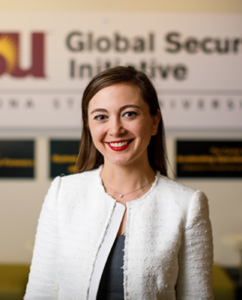
Nadya Bliss
Nadya Bliss, Computing Community Consortium (CCC) Executive Council member and Executive Director of the Global Security Initiative (GSI), was recently interviewed by her local CBS affiliate station on tracking how misinformation and disinformation spreads on social media and why, in recent years, it is spreading more rapidly.
“Around events that are changing really rapidly, the information ecosystem is particularly sensitive to all kinds of noise. Whether it’s misinformation without intent or disinformation with intent,” Bliss said. “It’s very difficult for an individual to be able to parse everything and we’re very susceptible. We’re in this moment where we are consistently checking, which makes us more vulnerable. False information tends to spread faster than true information and the trend has accelerated over the last few decades.”
The GSI conducts research on disinformation that brings computer scientists, social scientists, journalists, and other experts together to tackle the problem.
“Computer science is critical to addressing this problem, but it alone is not enough. There also has to be an understanding of the impact on people and what makes people spread, look at, and absorb disinformation.”
In order to avoid spreading misinformation or disinformation, Bliss urges everyone to be patient and fact-check with multiple legitimate sources. Take time to check sources when you are scrolling twitter before retweeting or sharing with a friend, and recognize that the creators of disinformation aim to trigger an emotional response, and often weave elements of truth into their misleading narratives. See the full interview here.
The CCC has released a series of quadrennial papers, including one recently on An Agenda for Disinformation Research by Nadya Bliss, Elizabeth Bradley (University of Colorado, Boulder), Joshua Garland (Santa Fe Institute), Filippo Menczer (Indiana University), Scott W. Ruston (Arizona State University), Kate Starbird (University of Washington), and Chris Wiggins (Columbia University). This relevant paper describes a multi-disciplinary research agenda incorporating disinformation detection, education, measurements of impact, and new common research infrastructure to combat disinformation and its effects upon the US and the world. See the paper here.









